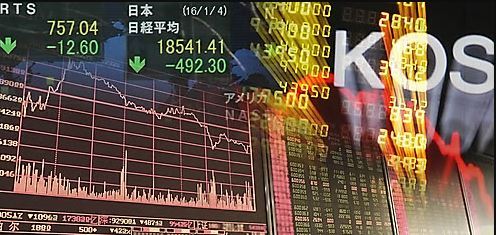Retail investors’ short selling transactions in the third quarter accounted for merely 1 percent of the total transaction volume, according to Korea Exchange data Monday.
Short selling is a high-risk trading strategy when investors borrow shares to sell them on the market, in order to buy them back later at a lower price. The investors hope to profit by returning them to the lender at a later date.
 |
(Yonhap) |
According to the nation’s main bourse operator, short selling by retail investors of shares listed on the benchmark Kospi and secondary Kosdaq amounted to 280 billion won ($234 million) in the third quarter, which accounted for nearly 1 percent of the entire short selling transactions throughout the cited period.
The total transaction volume amounted to 27.4 trillion won, while foreigners and institutional investors accounted for 62 percent and nearly 37 percent, respectively.
Due to the high risks involved, short selling transactions by individual investors have been lower than that of foreign and institutional investors. Their transactions accounted for 0.33 percent in the first quarter of 2018 and increased gradually to hit 1.2 percent in the fourth quarter.
This year, it inched back to 0.95 percent in the second quarter after hitting 1.32 percent in the previous quarter.
The data comes amid the government’s efforts to lower the barrier for individual investors to support short selling, following Samsung Securities’ “fat finger” trading scandal in April last year.
The brokerage became mired in controversy after it mistakenly issued nonexistent 2.8 billion stocks to employees on April 6, 2018, instead of paying 2.8 billion won in cash dividends under its stock ownership plan. Some 16 employees then immediately offloaded 5 million shares, worth about 200 billion won.
This fueled calls to prohibit all types of short selling as the brokerage is suspected of practicing naked short selling, which is illegal in South Korea. Due to its act of shorting stocks without actually borrowing the shares, naked short selling is considered controversial, as legally allowed short selling requires investors to actually borrow the shares.
By Jung Min-kyung (
mkjung@heraldcorp.com)








![[Weekender] Korea's traditional sauce culture gains global recognition](http://res.heraldm.com/phpwas/restmb_idxmake.php?idx=644&simg=/content/image/2024/11/21/20241121050153_0.jpg)